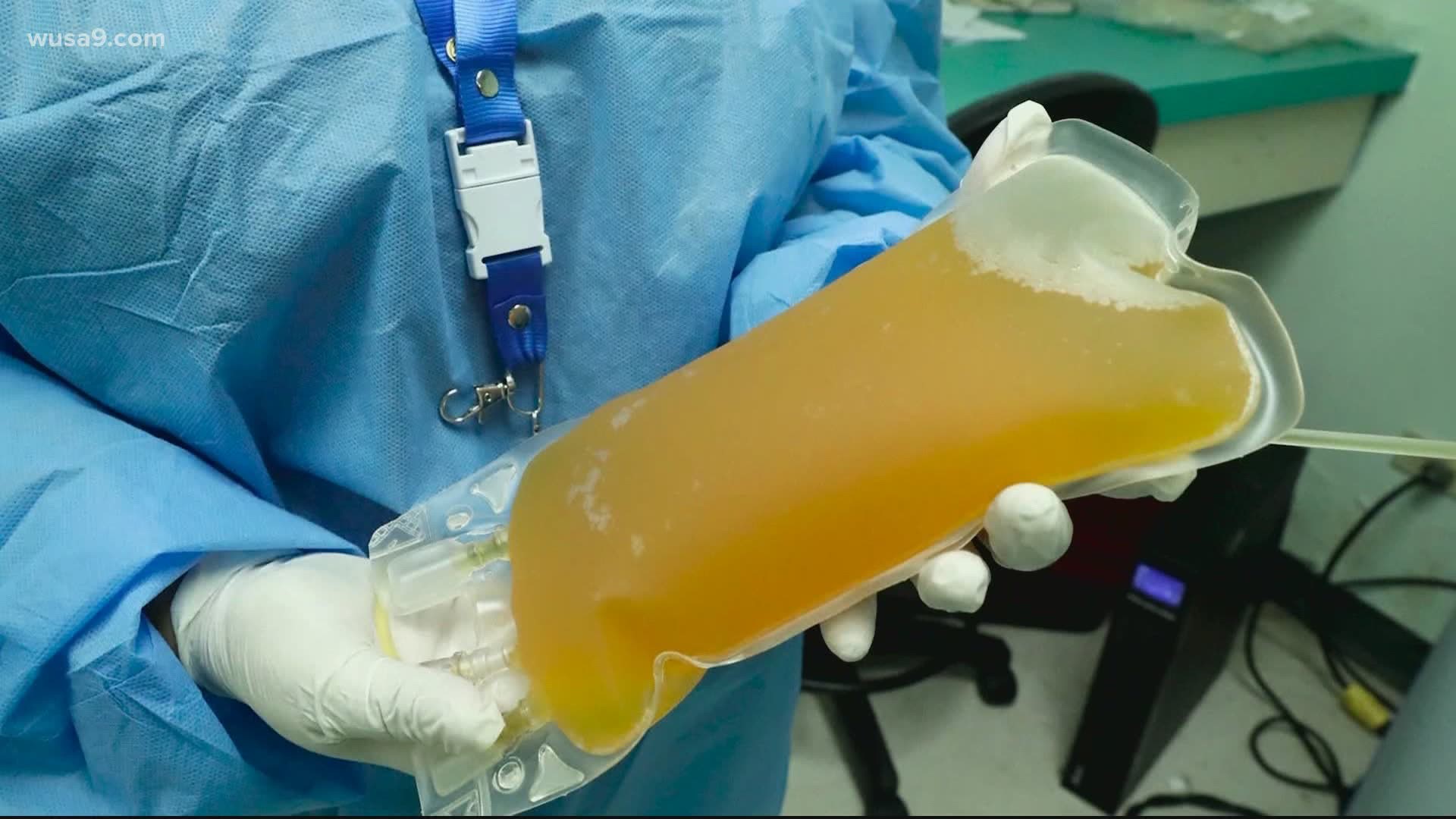WASHINGTON — If you have had the coronavirus and fully recovered, can you get it again? It is a question on the minds of many after the first likely case of reinfection in the U.S. was reported in Nevada last week. An expert at Rutgers University provides insight on the likelihood of similar cases happening.
Dr. Martin Blaser, who is director of the Center for Advanced Biotechnology and Medicine at Rutgers Biomedical and Health Sciences, tells WUSA9 that reinfection of COVID-19 is possible, but rare. He said mild cases of reinfection could be more likely than severe cases.
“We’ve had millions of people who’ve had COVID-19 around the world, in the U.S. alone, six million people, and the number of documented reinfections so far is one,” Dr. Blaser said. “ By now, we’re months into COVID-19 and we’ve seen very little evidence of reinfection.”
While Dr. Blaser is confident in that the chances of being reinfected by the virus are low, he said it heavily depends on how much the virus mutates, which is something researchers are watching closely.
“The critical question is whether they [strains of the virus] change in a manner that will affect human immunity,” he said. “ Whether the antibodies you make from today’s virus will protect you against tomorrow’s virus.”
Last week, scientists at the University of Nevada, Reno School of Medicine (UNR Med) led by Nevada State Public Health Laboratory reported a ‘likely’ case of COVID-19 reinfection , the first ever documented in the U.S.
According to their study , the patient tested positive in April, then “negative consecutively twice.” However, in June, the unexpected happened. The 25-year-old man tested positive again and was much sicker the second time around. He developed pneumonia and was hospitalized.
“It’s not surprising to me because when you have an infection that involves millions of people there will always be some variation in the responses,” Dr. Blaser said. “Antibodies are only part of an immune response.”
A recent antibody study that involved tests on more than 30,000 people in Iceland, found that immunity is possible for at least four months after diagnosis.
While that was not the case for the patient in Nevada, testing found that antibodies spiked for two months after infection then stabilized for two more.
“That doesn’t mean their immunity is lost, the body is saving its energy by not putting out a lot of antibodies when it doesn’t need to,” Dr. Blaser said. “How solid that immunity is depends on how much the virus changes.”
Dr. Blaser reminds us all to take the necessary safety measures to protect ourselves and the people around us as we continue adapting to a new normal in this pandemic.

